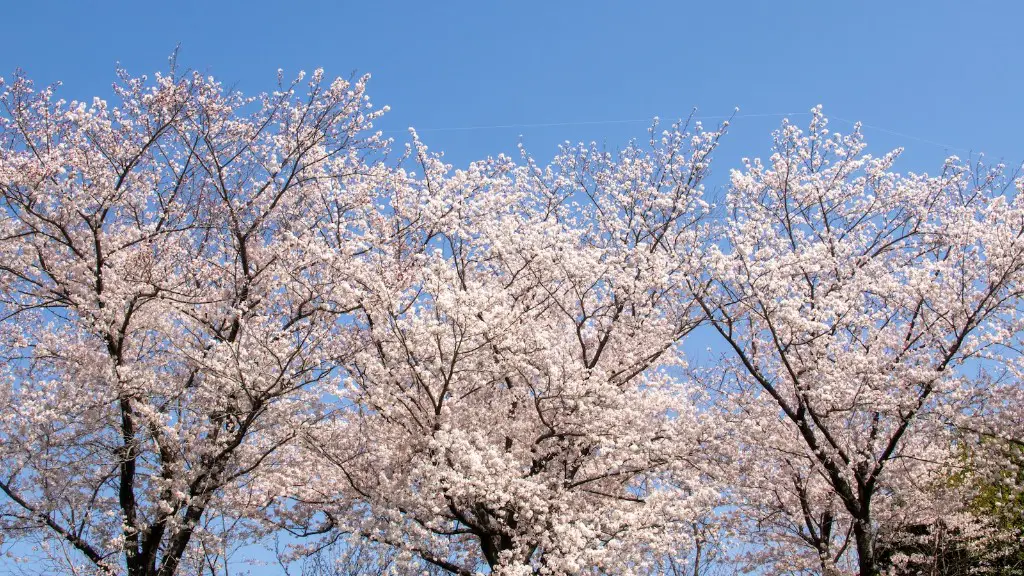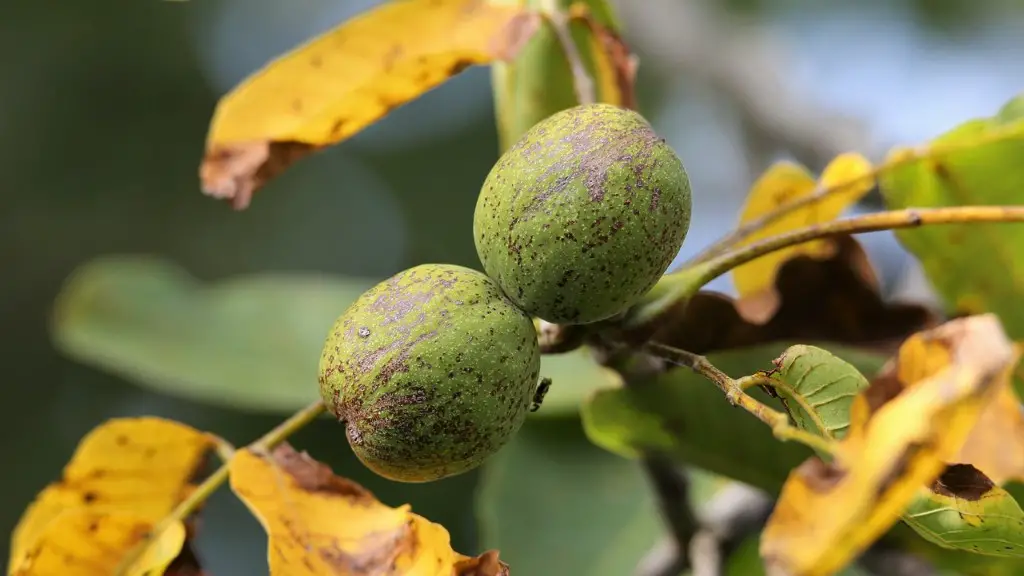A lemon tree can live for an incredibly long time if given the right conditions. In some cases, a lemon tree can live for a hundred years or more. It all depends on how well it is taken care of and how resilient it is against disease and pests. The average lifespan of a lemon tree is between 10-15 years, although there are some reports of lemon trees living as long as 30-50 years or even more. Generally, younger lemon trees will produce more of the tart lemony fruit, while older trees can still produce a decent amount of fruit with proper care.
The key to a healthy, long-lived lemon tree is proper care. Lemon trees will require adequate sunlight and well-draining soil in order to thrive. In addition, it is important to fertilize and prune the tree to help maintain its health. Pruning will help the tree keep its shape so that it can be taken care of easily. Pests and disease can also be a factor in how long a lemon tree will live, so it is important to monitor the tree for any signs of damage or unhealthy growth and act quickly to address these issues.
When it comes to proper care, it is important to remember that proper watering is essential to keeping a lemon tree healthy and strong. Lemon trees need to be watered on a regular basis, with the soil kept moist but not overly wet. Applying mulch can also help retain moisture in the soil and discourage weeds. Additionally, removing any damaged or weak branches will help manage the tree better, while maintaining the appropriate size of the canopy.
Despite its long life, a lemon tree will eventually reach the end of its life cycle. To maximize the lifespan of a lemon tree, proper and consistent care should be taken. This includes providing the tree with adequate sunlight, pruning, and proper watering. Additionally, monitor the tree for signs of disease or pests, and be prepared to tackle the problem if it arises. With the right care and attention, a lemon tree can bring you many years of delicious lemons.
Influential Factors
The amount of time a lemon tree can survive depends primarily on a few key factors. Firstly, the environment in which it is planted is a very important factor. Lemon trees prefer a moist environment in direct sunlight, so if it is not placed in the right spot then it will not last as long as it could. Additionally, how well the tree is taken care of is important – if it is not fertilised, pruned, and watered regularly then it will not last as long.
The species of the lemon tree also plays an important role in its lifespan. Different types of lemon trees have their own strengths and weaknesses and can survive for varying lengths of time. For example, some lemon trees can survive for over a hundred years, while others can only last for a few years. Lastly, the age of the tree is also an important factor – younger trees are generally more able to survive than older trees.
Overall, how long a lemon tree will live depends on several factors and can vary greatly depending on each individual tree. Generally, with the right care and attention, a lemon tree can survive for a decade or longer. In some cases, the tree can even survive for a century. Therefore, it is important to take good care of your lemon tree if you want it to last as long as possible.
Best Practices and tips
To ensure your lemon tree lives its longest life, there are some best practices and tips you can use. Firstly, choose the right climate. Lemon trees can survive in a range of climates, but some are more suitable than others. The best climate for a lemon tree is mild and moist with plenty of sunlight. When planting the tree, it is important to pick a spot that has the best environmental conditions.
In addition, watering and fertilising the lemon tree regularly will help keep it healthy and strong. Watering should be done so that the soil is moist but not overly soaked. Fertilizing can help to replenish the soil and provide the tree with the necessary nutrients. Lastly, pruning the tree can help keep it in shape and manageable, while removing insect pests or disease can help prevent further damage.
Overall, there are several considerations to make when taking care of a lemon tree. Ensuring it is planted in the right environment, fertilised and watered regularly, and pruned can all help to ensure it lives as long as possible. Taking these measures can help make sure your lemon tree continues to provide you with delicious lemons for many years to come.
Pest and Disease Prevention
One of the main factors in keeping a lemon tree alive for a long time is preventing pests and diseases from affecting it. To help keep pests and diseases away, regularly inspect the tree for any indications of problems. This includes checking for any pests or disease, as well as any weak or damaged branches. If any are found it is important to act quickly and remove or treat them.
In addition, you can use mulch to help repel pests, and prune the tree to make sure there is sufficient airflow. Applying plant protection sprays can help keep away some of the more harmful pests and diseases. Keeping the surrounding area of the tree clean and clear of any clutter will also help make sure it stays healthy and strong.
Pests and diseases can be difficult to control and prevent, but it is important to keep an eye out for any possible problems. If any issues are spotted, it is important to act quickly to prevent them from getting worse. By taking precautions such as using mulch and plant protection sprays, as well as keeping the tree pruned and its environment clean, you can help keep it safe from any possible pests and diseases.
Drought Conditions
When there are periods of drought, it is important to take extra care of your lemon tree to make sure it doesn’t suffer. One of the main thing to consider is the amount of water that is given to the tree. During drought conditions it is best to give your lemon tree more water than usual, as long as it is not too much, in order to keep the soil and tree adequately hydrated.
In addition, adding mulch and creating a barrier between the tree and direct sunlight can help keep water from evaporating too quickly. Additionally, using a tree wrap can help shade the tree from the sun. This will help to keep the tree from losing too much moisture and protect it from the harshest of the sun’s rays.
If your area is experiencing a period of drought, it is important to take extra precautions with your lemon tree. Make sure you keep the soil moist, and consider using mulch, tree wraps, or some other form of protection to keep the tree from drying out too much. Additionally, monitor your tree regularly for any signs of damage or unhealthy growth. With some extra care, your lemon tree should endure the drought conditions and continue to provide you with delicious lemons.
Frost Protection
Frost is one of the main causes of damage and death of lemon trees, so it is important to take steps to protect the tree during periods of extremely cold weather. Before the colder months, it is best to remove any weak or dead branches and to prune the tree to help manage it better. Additionally, adding mulch to the ground can help keep the surrounding soil warmer and can provide some additional protection.
When frost is likely, using frost blankets and other forms of protection can help keep the tree from damage and protect it from extreme elements. Consider placing the frost cover over the tree early on, so that it can be taken off when the temperature rises. Lastly, keeping the soil moist can help protect the root system from frost damage.
Overall, taking measures such as pruning, mulching and using frost protection can help keep your lemon tree safe from frost damage and keep it alive for longer. Additionally, inspecting the tree regularly, especially during the colder months, and removing any weak or dead branches can help maintain the tree’s health and prevent premature death.



